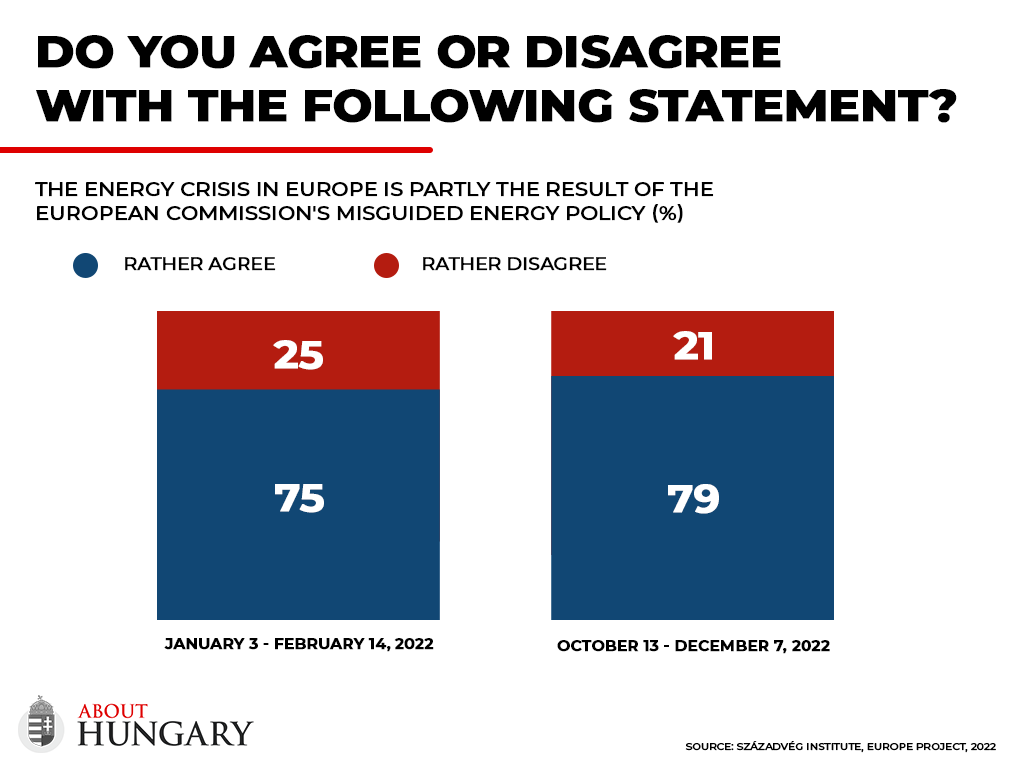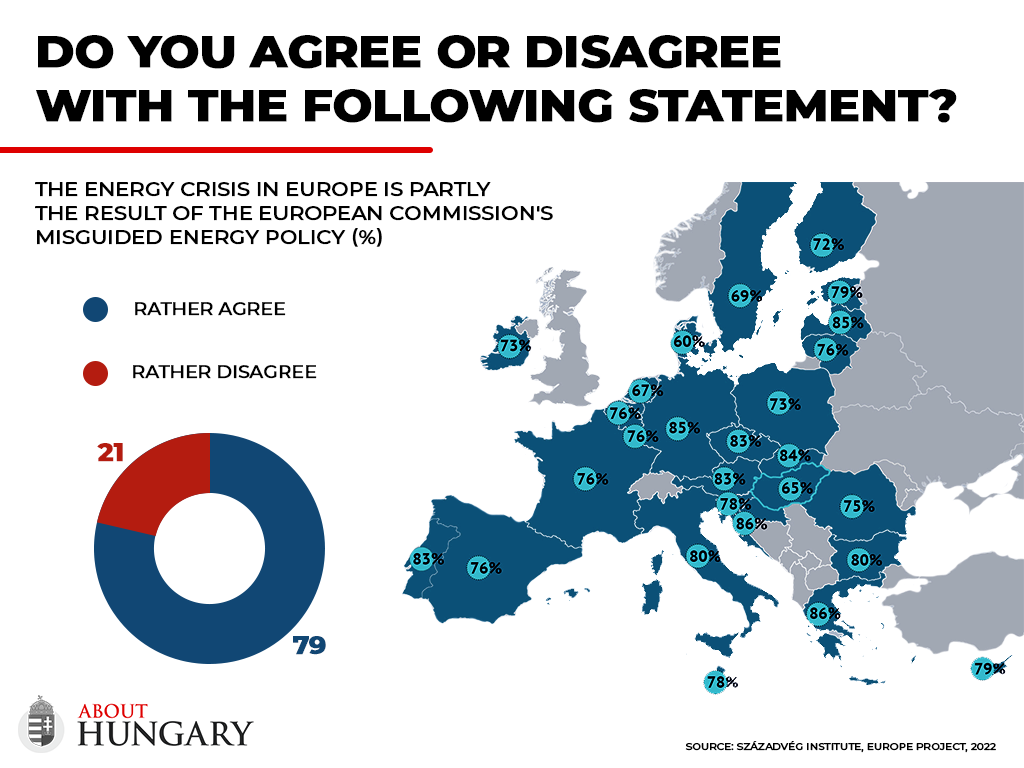A growing number of Europeans think that the European Commission's botched energy policy is a contributing factor in the current energy crisis.
This is not surprising, as following the first major energy price hike in autumn 2021, many experts had already suggested that the structural problems in the European energy market stemmed to a large extent from the ideology-driven policies enacted by Brussels.
At the time, European Commission representatives argued that the criticisms were unsubstantiated, as price hikes were only temporary and that efforts to radically transform the energy sector needed to be ramped up.
After the eruption of the war in Ukraine, Brussels has focused its energy policy on sanctioning Russian energy carriers, which, while maintaining its previous ambitions, has further constrained Europe's energy market.
In continuation of its pre-war Europe Project survey, conducted between January 3 and February 14, 2022, Századvég again asked the European adult population if it “rather agrees” or “rather disagrees” with the statement, “The energy crisis in Europe is partly the result of the European Commission’s misguided energy policy.” This second poll was conducted between October 13 and December 7, 2022.
The results of the pre-war survey had already clearly shown that people did not agree with the European Commission's argument that its previous energy policy efforts needed to be boosted. In the earlier 2022 survey, three-quarters of respondents blamed Commission policy for the energy crisis.
And since the imposition of sanctions, opposition to Brussels' energy policy has only risen.


